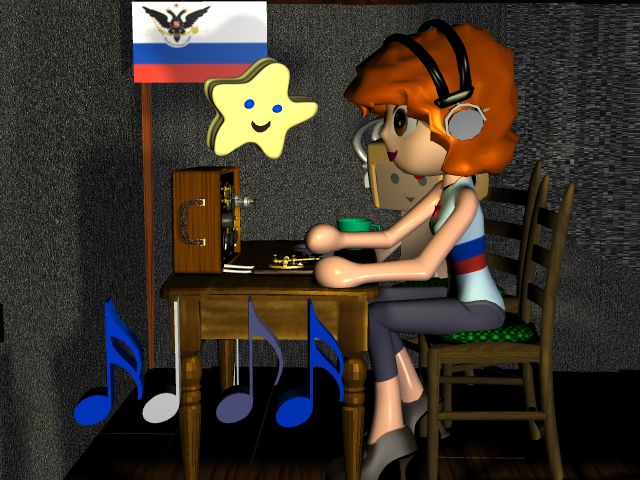Saturday, June 03, 2017
Can Morse express emotion via duration? YES.
Following previous item, a failed attempt to add expression to Morse via pitch intonation.
Repeating last paragraph:
Since Morse is a time-duration code, it's possible that pulling durations may be a more fitting form of expression. Modern English doesn't use duration phonemically, so a native English speaker isn't tuned to small variations. Many languages do use duration. For some reason the agglutinators like Finnish and Japanese and Hungarian are strong on distinctions in length and weak in pitch distinctions. Anglo-Saxon formerly used length phonemically; we still incorrectly use the terms Long and Short, but the "Long" vowels in Modern English have become diphthongs unrelated to the original. Length seems to be a factor that comes and goes over centuries, which means it's always "available" to some degree.
So let's try it. Again modified the Python morse-sender to vary duration. Numbers are treated as duration pullers. 0 = shortest, 5 = default, 9 = longest.
Switched my brain back to Okie mode and said a sentence with plenty of variation, then tried to write it with corresponding duration numbers.
5ok8ay 4now 4th7is 5is 4get3ting 3clos2er 5to 5the 7des8ired 6res3ult
And here's the desired result in MP3 form.
Success! Expressive Morse!
 Best of all, this can be done in plain old hand-sent CW without any special knobs or modulation tricks. Normal senders undoubtedly do it to some extent without trying, but "proper" sending is supposed to be precise, so nobody practices this form of expression deliberately. If you're using a bug or a digital keyer, precision is the only choice.
Best of all, this can be done in plain old hand-sent CW without any special knobs or modulation tricks. Normal senders undoubtedly do it to some extent without trying, but "proper" sending is supposed to be precise, so nobody practices this form of expression deliberately. If you're using a bug or a digital keyer, precision is the only choice.
 Best of all, this can be done in plain old hand-sent CW without any special knobs or modulation tricks. Normal senders undoubtedly do it to some extent without trying, but "proper" sending is supposed to be precise, so nobody practices this form of expression deliberately. If you're using a bug or a digital keyer, precision is the only choice.
Best of all, this can be done in plain old hand-sent CW without any special knobs or modulation tricks. Normal senders undoubtedly do it to some extent without trying, but "proper" sending is supposed to be precise, so nobody practices this form of expression deliberately. If you're using a bug or a digital keyer, precision is the only choice.Labels: Asked and answered, Zero Problems
